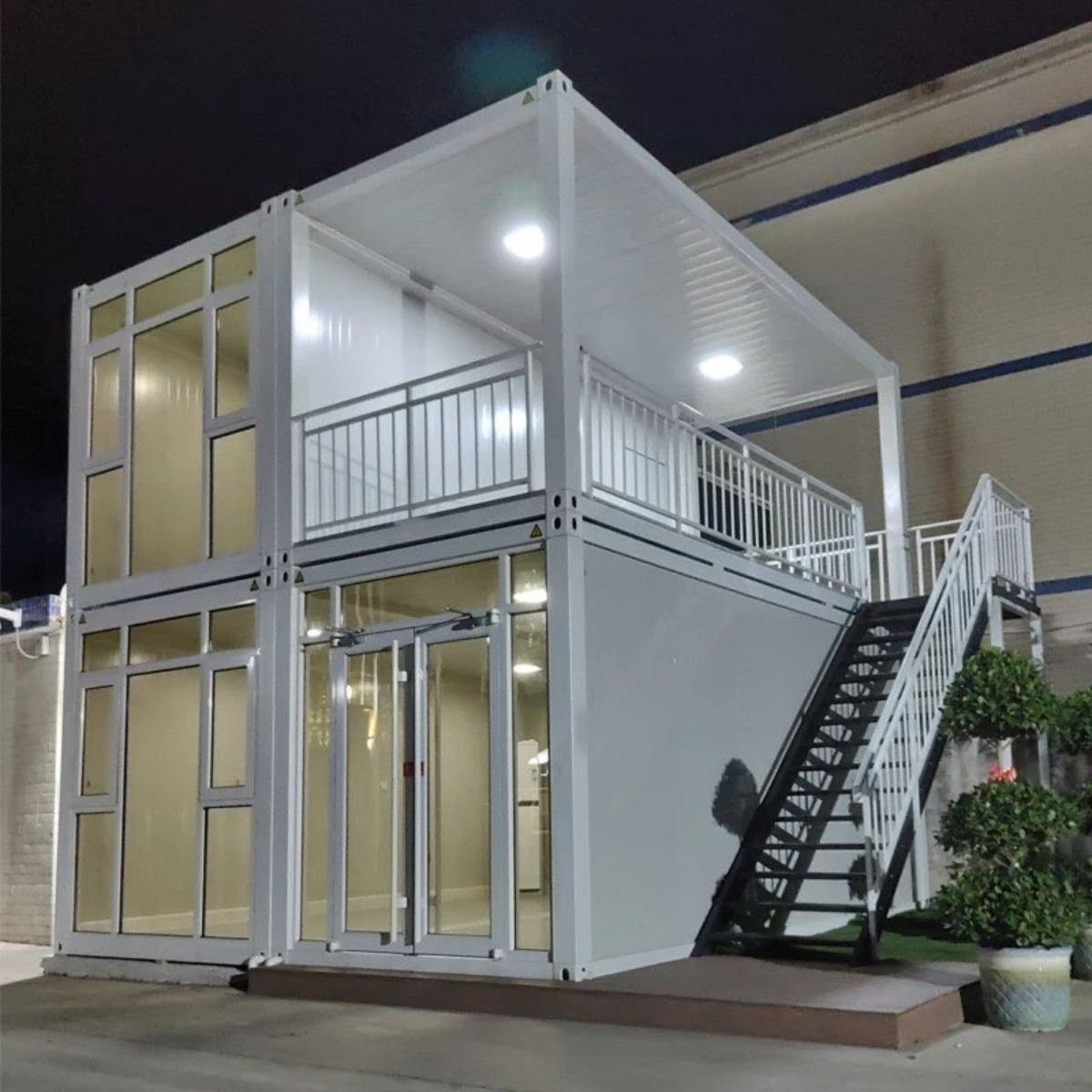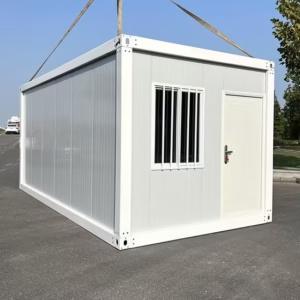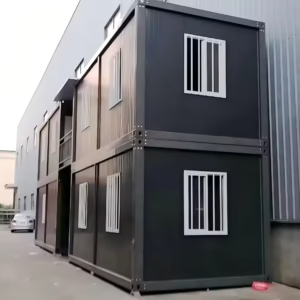Eco-Friendly Rock Wool Insulation for 40FT Detachable Container Houses
In recent years, the popularity of container houses has skyrocketed due to their affordability, portability, and sustainable design. Among these, the 40FT detachable container house has become a preferred choice for modern living, temporary accommodations, and eco-conscious construction projects. However, one critical aspect that determines the comfort and energy efficiency of these homes is insulation. Eco-friendly rock wool insulation has emerged as a superior solution for container homes, combining sustainability with high performance.
What is Rock Wool Insulation?
Rock wool insulation, also known as mineral wool, is made from natural rocks such as basalt or diabase. The raw materials are melted at high temperatures and spun into fibrous mats or panels. Unlike traditional insulation materials, rock wool is not only fire-resistant but also offers excellent thermal and acoustic insulation properties.
For eco-conscious homeowners, the appeal of rock wool extends beyond its performance—it is environmentally friendly, made from abundant natural resources, and often includes recycled materials.
Why Choose Eco-Friendly Rock Wool for Container Homes?
Container homes, particularly detachable 40FT containers, have unique insulation challenges. Metal walls conduct heat and cold quickly, which can make living spaces uncomfortable without proper insulation. Here’s why eco-friendly rock wool is the best choice:
1. Superior Thermal Performance
Rock wool insulation maintains consistent indoor temperatures by reducing heat transfer through metal walls. This ensures that your container house remains warm in winter and cool in summer, significantly reducing the reliance on heating and cooling systems.
2. Fire Resistance
Safety is paramount in container housing. Rock wool is naturally non-combustible, with a melting point of over 1,000°C. This makes it an excellent choice for preventing fire hazards in compact living spaces.
3. Acoustic Insulation
Living in a metal container can amplify noise, whether from rain, wind, or nearby activities. Rock wool’s fibrous structure effectively absorbs sound, creating a quieter and more comfortable living environment.
4. Eco-Friendly and Sustainable
Eco-conscious builders and homeowners are increasingly looking for materials with a low environmental impact. Rock wool insulation is recyclable, made from natural and recycled materials, and does not emit harmful chemicals, making it ideal for sustainable container house projects.
5. Moisture and Mold Resistance
Unlike some traditional insulation materials, rock wool is resistant to moisture and mold, reducing the risk of structural damage and health hazards in a container house.
Installation Tips for 40FT Detachable Container Houses
To maximize the benefits of rock wool insulation in a 40FT detachable container house, proper installation is key. Here are some tips:
-
Measure Accurately: Ensure that insulation panels fit snugly between container walls to prevent heat gaps.
-
Use Vapor Barriers: In humid climates, pair rock wool insulation with vapor barriers to prevent condensation.
-
Seal Joints Properly: Seal gaps between insulation panels and around windows or doors to improve thermal efficiency.
-
Consider Multi-Layer Insulation: For extreme climates, consider layering rock wool with eco-friendly foam panels for added insulation.
Advantages of Using Rock Wool Over Other Insulation Materials
| Feature | Rock Wool | Fiberglass | Foam |
|---|---|---|---|
| Thermal Performance | Excellent | Good | Good |
| Fire Resistance | Non-combustible | Limited | Varies |
| Acoustic Insulation | Superior | Moderate | Limited |
| Eco-Friendliness | High | Moderate | Low |
| Moisture Resistance | High | Low | Moderate |
As seen above, rock wool insulation provides a balanced solution, offering high performance without compromising on sustainability.
Conclusion
For a 40FT detachable container house, choosing the right insulation material is crucial for comfort, safety, and sustainability. Eco-friendly rock wool insulation stands out as an optimal choice, offering thermal efficiency, fire resistance, acoustic comfort, and environmental benefits. By investing in rock wool insulation, homeowners can enjoy a comfortable, energy-efficient, and eco-conscious living space that meets modern sustainable building standards.








Reviews
There are no reviews yet.